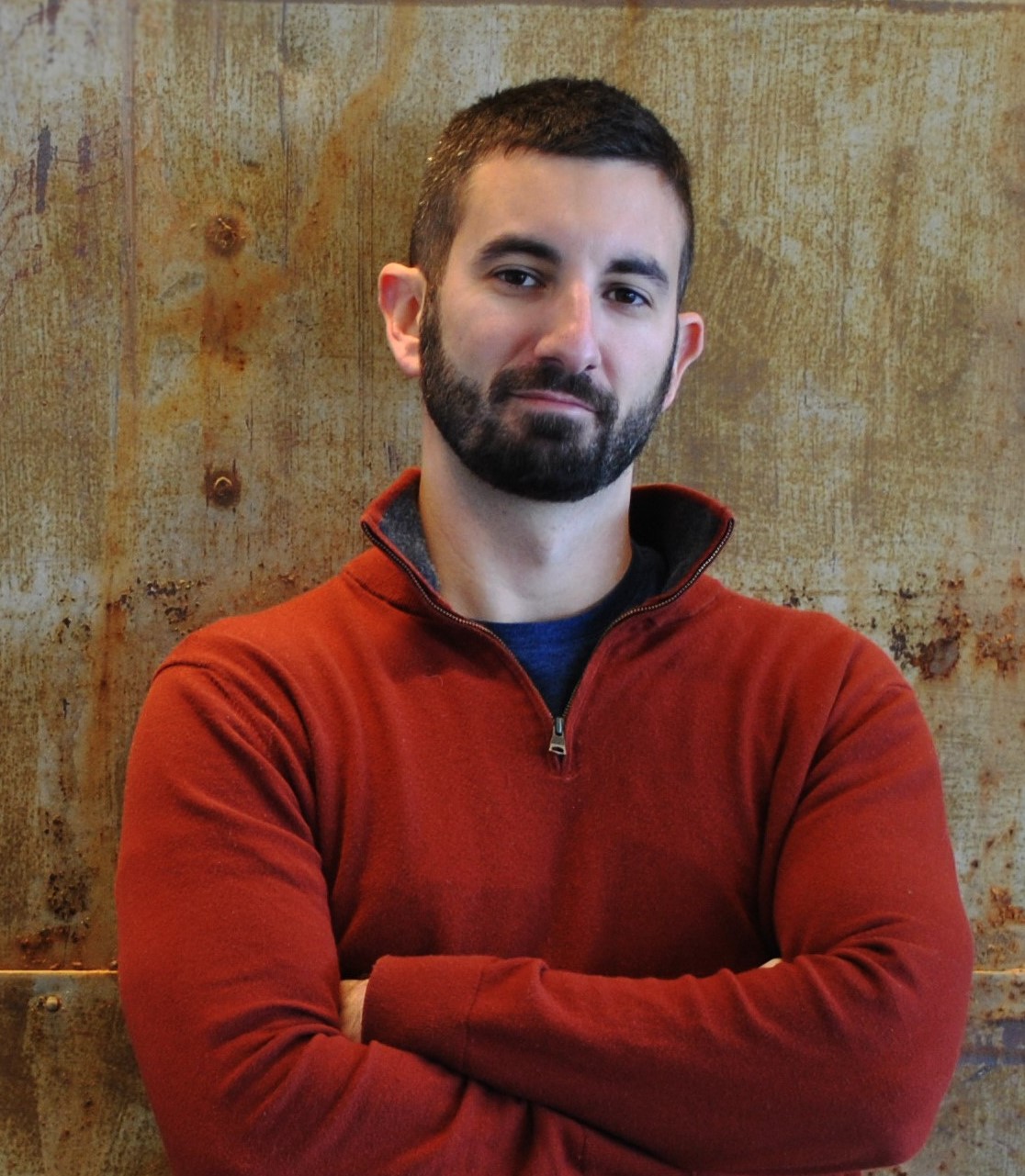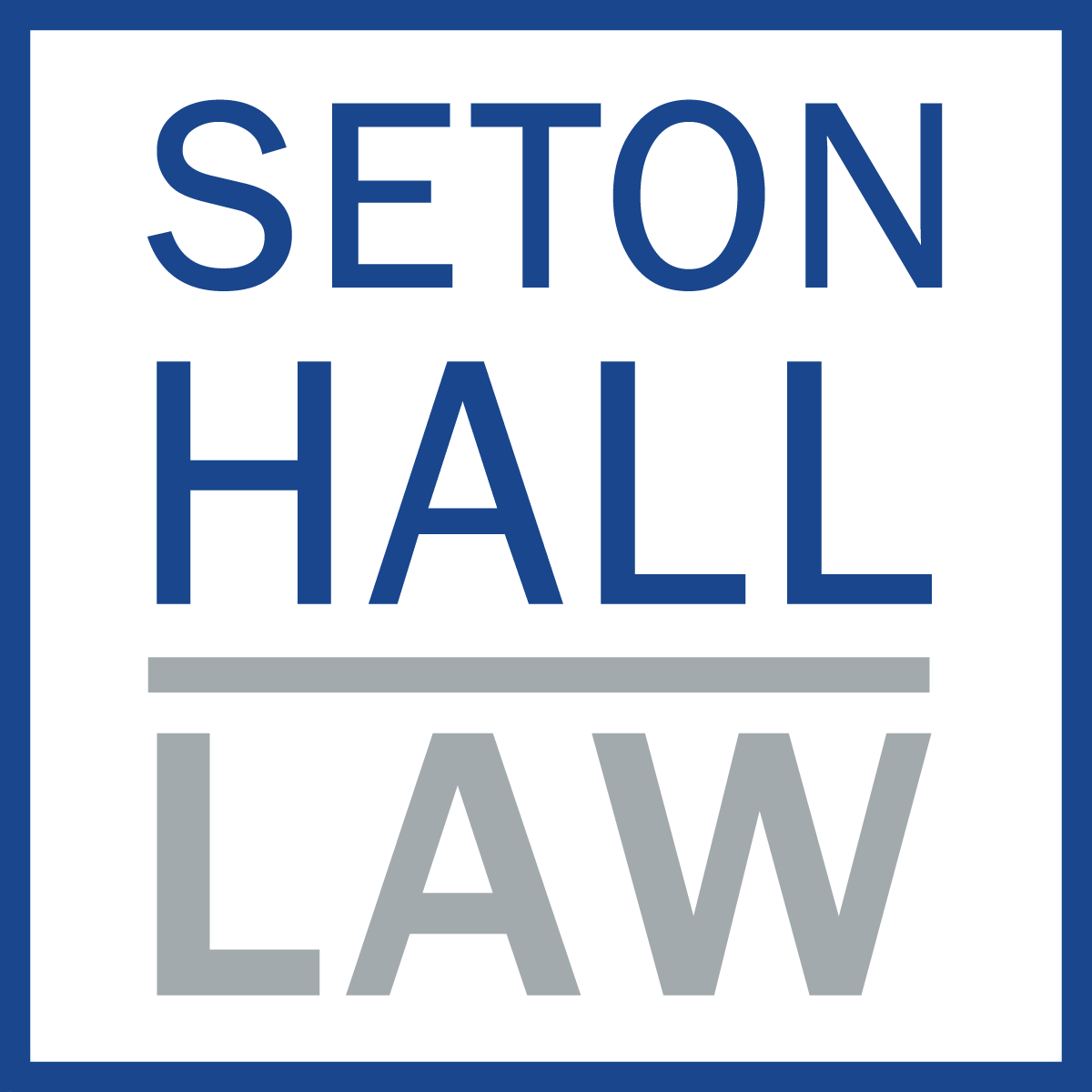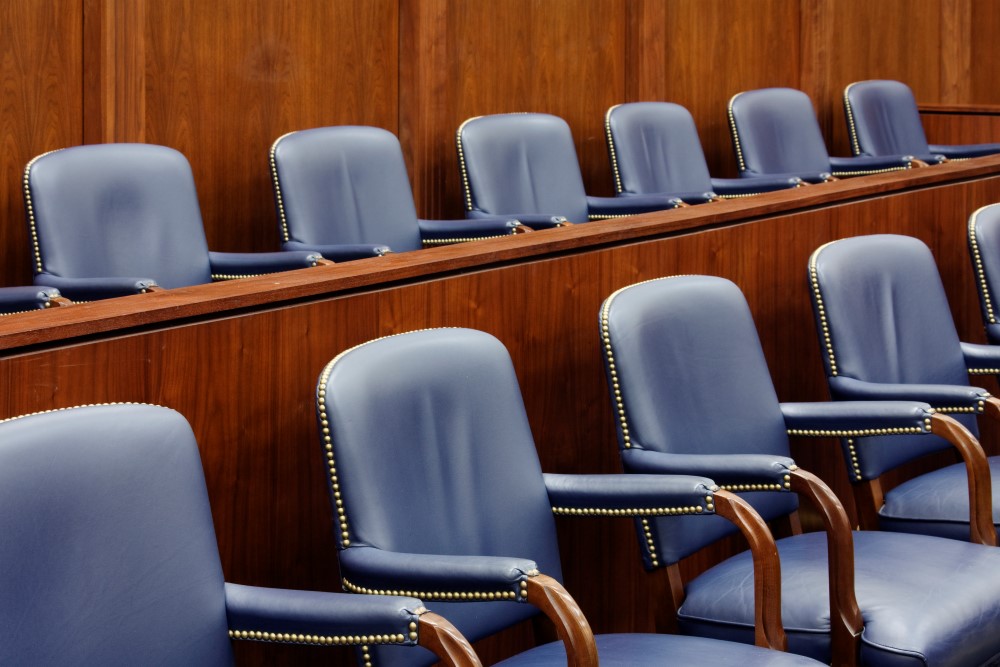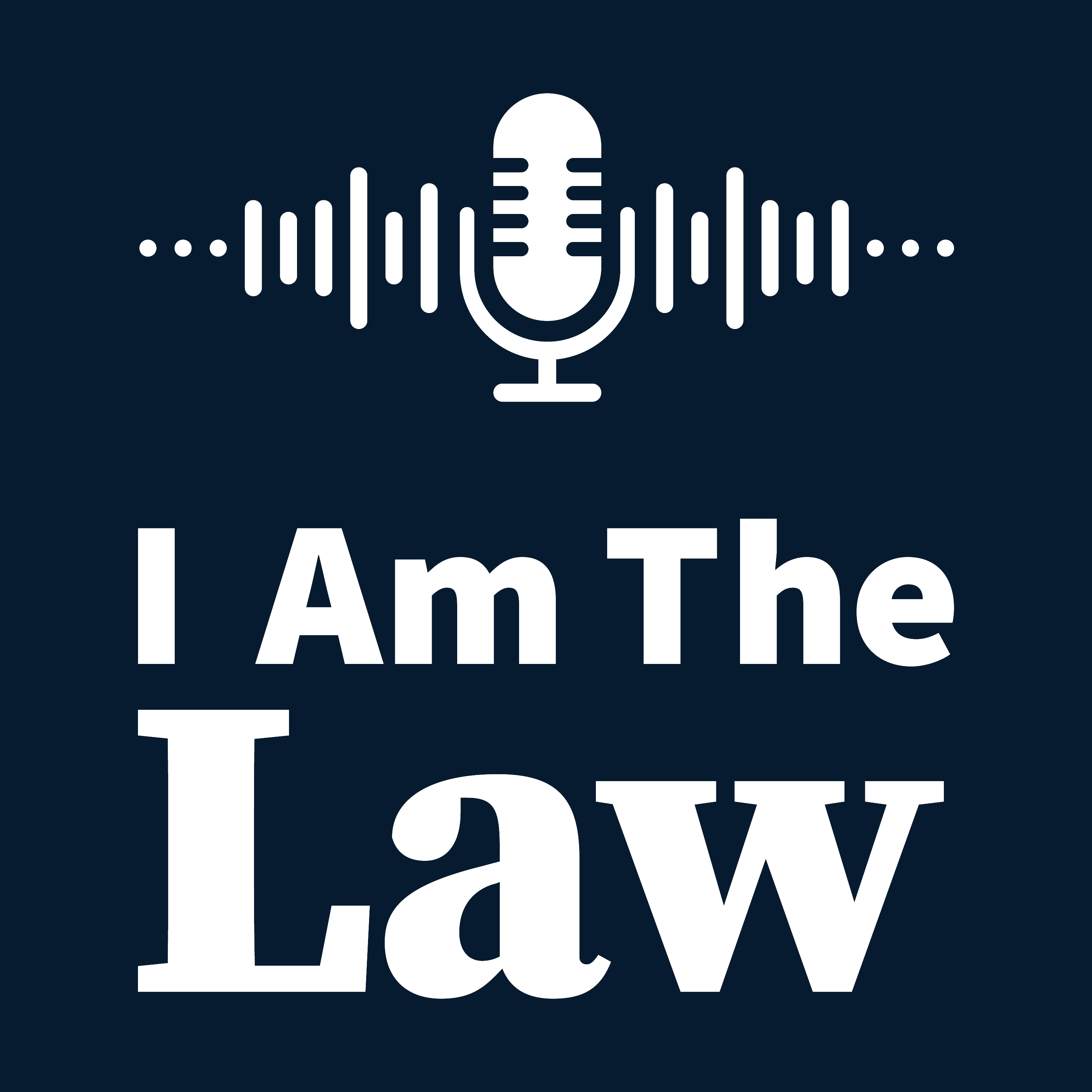When the opportunity arises, seize it. That's one lesson from Judge Elizabeth Rohl, a trial court judge in a one-judge county who knew it was now or never when the position opened up during Covid. But despite her taking her shot and succeeding, Judge Rohl had her doubts. In this episode, she discusses overcoming impostor syndrome, the day-to-day operations of the courtroom, saying "I don't know," and having a profound impact on her community. Judge Rohl is a 2008 graduate of Michigan State University College of Law.
Transcript
Kyle McEntee:
We're joined today by Judge Elizabeth Roll, a judge on the Pierce County Circuit Court in Wisconsin. Judge Roll was appointed to the bench in January 2021 and elected into the position in April 2022.
The names of various courts and levels vary all around the country. In Wisconsin, the Circuit Court is the General Jurisdiction Trial Court. How do Wisconsin trial courts compare to the other courts in the state, the municipal and the appellate courts?
Judge Rohl:
The appellate court system in Wisconsin generally does not take any new evidence, so the trial courts are really the ones that hear the evidence and make the initial decision. And the appellate court, both the Court of Appeals and the Wisconsin Supreme Court, evaluate based on the record that was completed in the trial court and then apply the law. The municipal courts in Wisconsin are a little different. They are essentially a trial court. But in Wisconsin, to be a municipal law judge, you don't have to have any legal training or experience. And so some of them are lawyers, some of them are not, but it essentially operates like a trial court. They don't hear any crimes. They're only forfeiture, traffic offenses, citations, that sort of thing.
Kyle McEntee:
You initially became a circuit judge after you were appointed by the governor. What was that process like?
Judge Rohl:
Well, intimidating for starters. I had known that the judge whose seat I took was retiring. And so then the governor solicited applications. I submitted my application, which included some essay questions and things like that, and then found out I was going to have an interview. This was all during a pandemic in December of 2020. So my interview was via Zoom.
The governor has a panel of lawyers that he selects to serve as his selection panel. And so my first interview was with this panel of people, all attorneys, who all asked me a specific question from their area of legal expertise that I then had to respond to. And then I had an interview via Zoom again with the governor. And then at the end of that interview, he informed me that he would be appointing me if I was wanting to accept it.
So the process itself was intimidating because you're faced on Zoom with the Brady bunch squares of all these different attorneys who know more about any given subject area than I do, and they're asking me questions very specific to their area. And then I can see myself down in the corner sweating and trying not to look at my own face.
Some of them are politically skewed. Judicial seats in Wisconsin are nonpartisan, but obviously you're being appointed by a governor who is a partisan governor. So some of them were a little, I would say, politically motivated.
There had been someone in another county who was appointed. And I contacted that judge and asked for her input, if she'd be willing to talk to me about what the process was like. So I will admit that I had a bit of a heads up to what some of the questions were going to be. You also know who is on the panel. So I had the opportunity to look at them, know their area of expertise and kind of prepare for those types of things in advance.
Kyle McEntee:
Did you always have a goal of becoming a judge?
Judge Rohl:
Yes. Although I did not plan to be doing that at this phase in my life. I thought it would be something that I would do later. I am the only judge in Pierce County. So generally speaking, in this area, people don't run against a sitting judge unless there's some sort of big thing that happens. And so when the opportunity arose, it was sort of now or never in some ways. So I took the opportunity when it came up and here I am.
Kyle McEntee:
Did you have some connection to the county?
Judge Rohl:
So when you're elected, you have to live in the county that you serve. I already did live in Pierce County and I grew up in Pierce County. So connection to the area for sure. But then yes, once you're elected, you do have to live in the county that you serve.
Kyle McEntee:
You said you always wanted to become a judge, but not this soon. What career opportunities did you give up by becoming a judge at this point in your career?
Judge Rohl:
I came from the office of corporation council, which is a uniquely titled office in Wisconsin. Nobody else calls it that. It's essentially in a county attorney for St. Croix County handling civil matters. So in terms of what I maybe gave up, I don't think that position would have gone anywhere else. I was an assistant corporation council.
I had no desire or intention to become corporation counsel. So likely my job would have essentially stayed the way it was until I decided to do something different. What I gave up, I would say, is I had been in that position for eight years and I knew what I was doing and the confidence that I knew what I was doing. And I had more flexibility than I do now. So that's the biggest change. Having little kids, it's a little bit more difficult to manage some of the things that the schedule conferences and things like that. So that is something that maybe would have been a little easier had I waited a little longer. But there wasn't anything I would have changed other than just more time.
Kyle McEntee:
Did you feel well prepared on that first day?
Judge Rohl:
No, not at all. Um, total, I would say imposter syndrome. When I was an attorney and I was sitting in the courtroom, I knew the correct answer for everything. I knew exactly what should happen. I knew what everybody should do. And suddenly you're in the seat, making the decision and it is just completely the opposite. I questioned everything I thought I knew and didn't know for sure what I was supposed to do. There is no real training process when you're appointed the way I was. In the election cycle, new judges start August 1st. So in July, there is a conference where all the new judges go and have a couple days of training to learn some things before they get started. But I didn't have that because I started in the middle of a term. So I just had to go with it. And then I did have two weeks of what they call mentoring, where I shadowed sitting judges and sort of watched what they did. But again, it was still the pandemic. So that was mostly watching via Zoom and sort of logging in and that sort of thing. It was easier once I got into it and started doing it. And then I felt more comfortable with it. But that first day was brutal. I was so nervous and had no idea what I was going to do and it all worked out okay.
Kyle McEntee:
In the period of time between when your predecessor retired and when you started, that wasn't, like, back-to-back days. But it's a one judge county. So what happened to the court system in that interim period?
Judge Rohl:
They brought in what's known as a reserve judge. Usually reserve judges are retired judges who keep up on their credits and come in and fill in in some circumstances. In this case, there was a judge who'd gotten married and moved out of her home county so she could no longer serve, but she stayed on as a reserve judge. So she came in and she did the entire calendar here in Pierce County for about a month, I would say.
Kyle McEntee:
Oh, so that means you could actually take a vacation every once in a while.
Judge Rohl:
Yes, it does.
Kyle McEntee:
Have you actually taken a vacation in the two plus years now you've been doing this?
Judge Rohl:
I have, yes. I'm the only judge, but we have a full-time court commissioner that can handle the intake duties and the things that come in sort of on an emergency basis. So I can take vacations, I just have to plan them like a year ahead of time.
Kyle McEntee:
Can you say a little bit more about the court commissioner and what their role is?
Judge Rohl:
He does a lot of the small claims cases, the initial appearances in criminal cases, a lot of the preliminary matters, he'll handle like domestic abuse injunctions, some of those things. Anything that the court commissioner does can be reviewed by the circuit court. So if the litigant isn't happy with the decision, they can appeal it essentially to the circuit court. And then I have to hear it de novo. So I have to start fresh, take a whole new court trial.
Kyle McEntee:
In that two weeks of shadowing you did, there's no way you learned everything you needed to know. So how do you keep learning these days?
Judge Rohl:
My entire career, essentially, as an attorney was in St. Croix County, which is a County just north of Pierce County. There are four judges in that County. When I took the bench, I maintained a connection to them so that I can rely on them in the moment. The community and the network of judges is actually fairly close knit. We have listservs, we have a messaging group that you can send a question out and solicit responses.
I have a couple of judges that started at the same time or the same year that I did. We're called a judicial class, so they're my classmates. And we have maintained a text chain, a Skype message chain, and we all ask each other questions. We came from different backgrounds: civil, family, criminal, and then I was corporation counsel. We all have sort of different backgrounds so we can lean on each other's expertise coming from the bar.
Kyle McEntee:
Speaking of all those different types of cases, what kind of cases are you hearing?
Judge Rohl:
Because I am the only judge, we don't have any specializations. So I hear everything. Family, criminal, civil. For example, today we had eviction small claims court trial, then a family matter, a criminal matter. And so it just goes back and forth.
Kyle McEntee:
Well, you must have some really good clerks helping you.
Judge Rohl:
We don't have clerks. There are clerks that are in the courtroom taking minutes and handling the filings, but we don't have law clerks. So there isn't anyone to handle research and writing and things like that, just me. So we're quite busy.
Kyle McEntee:
Yeah, I think it's pretty common for law students, prelaw students to assume that there's always a recent graduate clerk behind the judge, but that's definitely not the case.
Judge Rohl:
Not here. In bigger jurisdictions in Wisconsin, and we are a border county, we're right on the border of Minnesota. So we're very close to the twin cities. They have clerk positions in the cities, but we don't have them here.
Kyle McEntee:
People have some understanding of what happens in front of you in the courtroom, thanks to pop culture, books, TV, movies, et cetera. I'm curious about what happens after a case. What work do you do after the parties appear in front of you?
Judge Rohl:
One of the most talked about topics at the new judges orientation is try to avoid writing written decisions. My average week, Monday through Friday, I am in court from 8:30 to noon and 1:00 to 4:30. So the only time that I have to work on that stuff outside is either before we start at 8:30, over the lunch hour, or after hours.
Occasionally we'll have a hearing that gets canceled and then you have more time to do some of those things. But, for example, an average day, I come into the office, pull up all the cases, review all of the cases that are going to be before me that morning, figure out what exactly we're going to be doing, look through all the records in the cases, and then I do the same thing at lunch for the afternoon cases. After a hearing is done, it really depends on the particular case.
If it's a contested motion hearing or a complex issue, I usually do prefer to write a written decision because I do better hitting all of the bullet points if I can do it in writing rather than leaving something out during oral decision. I did just submit a couple of written decisions, so it does happen, but for the most part, once we're not in the courtroom, my involvement with the case is limited.
Kyle McEntee:
If you miss one of those bullet points when you're describing it orally, does that open you up to getting overturned? How does that work?
Judge Rohl:
The classic attorney answer: it depends. There are certainly a lot of court of appeals cases that read between the lines, so to speak, where they say, it's clear from the record that even though they weren't explicitly said, it was clear that they were considered. One prime example, in child custody and placement cases, there's a list of factors and there's like 14 factors and often some of them won't apply.
So you may not go through all of them, but you may, or maybe you forget to mention one specific factor, but it's clear in the record that there was domestic abuse in the relationship. So they can sometimes say it's clear from the record, but obviously it'd be better to say it all clearly. So you don't have issues on appeal.
Kyle McEntee:
Did anyone give you that advice not to write decisions in the months before you had that orientation?
Judge Rohl:
No, it would have been very helpful if they had. I did not have that discussion with any of the other judges that I had experience with til sometime thereafter, fortunately, most of the hearings don't require that type of in-depth decision. And so a lot of it was fairly routine. So there wasn't too many written decisions before my first orientation, but definitely wish I would have had that tidbit before I got started.
Kyle McEntee:
Any other advice you wish you'd had before you started?
Judge Rohl:
I wish I would have gotten extra robes because they are a pain to clean.
Kyle McEntee:
Are they dry clean only?
Judge Rohl:
Yes, and you do have to buy your own robe, which I wasn't prepared for. And I had a very short window to do it.
What other advice would I have wanted before I started? It isn't perhaps so much advice, but I wish that I could have gone into the job knowing that I could do it, having the confidence that I was smart enough, that I knew it well enough that I could do it, because that was the hardest part about starting was just that insecurity about not being good enough. And if I could have had that going into it, it would have made it a lot less stressful.
Kyle McEntee:
Do you think if you'd clerked before becoming a judge, that would have made a difference?
Judge Rohl:
I think either clerking perhaps, or as I said, most of my experience was in one county and in that particular county, the judges had all been judges for 20 years. So if I could have been in other counties, seen newer judges perhaps, maybe that would have changed my perspective a little bit, you know, everybody that I was in front of had been judges for a really long time. It was easy to see them as that sort of authority figure. If I had been in other jurisdictions, maybe I would have felt a little differently about my abilities.
Kyle McEntee:
Given the variety of cases that come in front of you every day, when do you have the time to research what the law actually is so that way you can apply it?
Judge Rohl:
I have to admit that my personality style skews a little bit towards the anal-retentive side, and I don't like not knowing things and I don't like not having the answers. So probably one of the biggest adjustments I would say was having to tell people, I don't know the answer to that. We need to come back so that we can look at that. The classic judge out is making the attorneys brief it so that they can look it up for you and tell you where to start looking. So that's one option is saying, you know, “I'm not sure what we're doing here what the law says. So each of you submit a brief and then I'll we'll come back for a decision or I'll write a decision.” Otherwise, it's just owning that you don't know something and that you have to take a break to look at it, depending on the situation in the case.
Kyle McEntee:
I feel like there's gotta be extra pressure on a judge to say, “I know,” especially if it's someone in front of you who is in a particularly vulnerable state. So say someone being accused of a serious felony. How do you balance saying I don't know with not undermining the justice system?
Judge Rohl:
As I was mentioning earlier, the thinking I used to know all the answers as an attorney, part of what led me to that confidence was knowing that the judge is up there, the judge has more experience and they'll know the answer if I don't know the answer and if I get it wrong. So there's immense pressure to get it right. Maybe not from other people, but definitely from myself. It's really hard to navigate. The best thing that I can tell people if they seem frustrated by that answer is that I would rather take the time and get it right and do it right than to give you an answer now, get it wrong, and then we have to do it all over again. Generally speaking, people understand that and I think they prefer having the correct answer, at least I do anyway. But that is something that is very tricky, especially when you have litigants who are not represented by an attorney. They expect the judge to know everything about everything. And it can be difficult when they don't get an answer when they're expecting one.
Kyle McEntee:
I'm glad you mentioned self-represented litigants because I was just about to say, well, you're a small County. It's like 40 or 50,000 people. The same lawyers are probably in front of you day in day out. So they can explain to their clients, you know, “trust her. She's going to get this right. Be patient.” But if they're self-represented, there's no one to really counsel them. And then it feels like that could really spin out of control.
Judge Rohl:
I think the best thing that I've tried to do is just explain what I do know and why that's giving me a question. So I know the statute says this, but then this statute says this, and I'm not sure when you put the two of them together what we do in this situation. And usually they can understand and at least then also know that I do know something about what I'm talking about. And so I think that does provide a little bit of help in those situations.
Kyle McEntee:
So let's say that one of the cases in front of you, the question is, was there an illegal stop? How does that play out in front of you?
Judge Rohl:
The state will call the law enforcement officer as a witness and they will testify about everything that led to the stop, what they saw, what they didn't see, for example, and why they stopped the vehicle. And then the defense attorney will cross examine and they'll both make arguments about, well, judge, you know, he extended the stop 36 seconds longer than he needed to. So everything that came after that is, has to be suppressed. And the state says, no, you know, that was a valid pause and he was doing legitimate tasks. So no, everything's fine. And then you just have to apply the case law to what's happening. Many of those things are, I don't wanna say routine, but they pick on the same Supreme Court precedent and the same cases. So the standards that you're applying are the same. You just have to apply them to the facts of this particular case.
Kyle McEntee:
So with a case like DUI, the consequences can be very severe and that can be extremely emotional for everyone involved. So how do you prepare yourself when you know you have a decision you're about to render that's so emotional?
Judge Rohl:
I’ll let you know when I figure that out. Wisconsin, we have set criteria that we're supposed to consider. Some states have more specific grids. For example, Minnesota, like I mentioned is very close to us, they have a sentencing grid. However many prior convictions, the severity of this case gives you sort of a range of an appropriate sentence. We don't have anything like that. We have basically maximum sentences. Drunk driving cases here, they're OWIs, operating well intoxicated. Those cases do have some presumptive minimums, but otherwise it's pretty wide open, which can be very difficult because if you come in for a sentencing, you know, the defendant may be asking to be put on probation and the state is asking for them to go to prison and that's a really big disparity in trying to figure out what is appropriate.
We have specific factors that we're supposed to look at and apply in every case. If I know it's a case where prison is an option, I will look at those factors, outline my thoughts based on what I see in the record with some ideas of what I may have. We're supposed to consider things like character of the defendant, the severity of the crime, the public punishment, deterrence. And so some of those you can weigh in advance, but the character of the defendant is always a difficult one to weigh because all I have is a complaint and a police report, and that usually is not the person at their best. And so you don't get to see all of that other information. Usually that's what comes out during a sentencing hearing. But, generally, I just try to organize my thoughts as best I can so that when I'm in the sentencing hearing, I can just listen. I can go through and map out the minimums, the maximums, any presumptive sentences that are in play, and then just listen to what the parties are saying to see if that sways me one way or the other.
Kyle McEntee:
It's a lot to keep track of. Do you have all of this at your fingertips? Is there a laptop in front of you? Do you have all your notes in front of you?
Judge Rohl:
So I have two screens in the courtroom that I have up and going. I also have a binder that another judge sent me all of the material for, and it's all tabbed out by subject matter that I can flip to in certain moments. So I have, for example, a sentencing tab that I can flip to, and it has a worksheet of... What are the factors I should consider? Uh, probation? And if you are sending someone to prison, there's a few other things you have to decide if they're eligible for certain programming. So it's just sort of an outline of all of those things to kind of keep you on track. The state puts out a lot of forms that we use, plea questionnaires, things like that, that can be used as a roadmap for getting through any particular hearing.
Kyle McEntee:
Is it ever extra challenging?
Judge Rohl:
We're sitting on the bench and I have to explain things to people and it's like a 20 page document that I'm going to essentially recite at you, especially in the child protection realm. There's all kinds of warnings that you have to give. But we just took your children away and I’m supposed to believe that you're listening to anything that I'm saying right now in any meaningful fashion? So, they are printed, but they are not written in a very understanding way. So it, it's difficult sometimes to expect that people are going to actually take away anything from those.
Kyle McEntee:
Are you able to change the words at all to make it more likely they're gonna hear you?
Judge Rohl:
I try to do both. I say the specific language to make sure that I hit the points, but then I try to have a, what I would characterize as a layman's discussion and say, “okay, here's what we just said. This is what that means. Here's what you're going to need to do.” Because it's difficult to understand all of it, but I'm also still really nervous about not hitting all the points. So I have to do both.
Kyle McEntee:
The law is always changing, whether it's from court opinions or from statutory changes. How do you discover those changes and then make sure your binder is updated?
Judge Rohl:
You should see my binder. It is a thing of beauty. Color coded, tabbed. We get a lot of emails. The forms committee always emails us if we have new forms. There is also some state agencies that summarize new laws. So if there's a new statute coming out or if there's a new Supreme Court decision, for example, they will put together a summary and send it out to all the judges so that we can see that and update whatever we do.
It's not that often that something drastically changes. And so when that happens, there's a lot of discussion about it. Usually, they're just more interpreting what's already there in a new set of facts. So, in the event that there is a big drastic change, usually that's discussed well in advance. We know it's coming. There's discussion about it before it happens. And again after. We are aso required to go to a certain number of judicial education things every year, those types of changes are discussed at those conferences.
Kyle McEntee:
So you've been on the bench now two years. What is the biggest reveal you've seen in the courtroom?
Judge Rohl:
Oh, that's a really good question. So it sounds like a really big reveal, but it was a very non-dramatic case. It was a small claims case someone didn't pick up dog feces. But the owner of the dog said that it wasn't them and she had come into court with someone else and the witness who was testifying whose yard had gotten the feces in it was like, well, she wasn't walking the dog. “But she was!” And pointed to the woman that came in with the defendant. And so everybody turns and looks, and that was the woman who had been walking the dog and didn't pick up the feces. So not a high stakes case, but it was a very dramatic, she did it and pointed. Sort of reminiscent of all the Perry Mason episodes.
Kyle McEntee:
So now I have a procedural question, which is, what do you do with that new information that's introduced, but there's been no time to vet it?
Judge Rohl:
Fortunately, small claims cases are much more relaxed in terms of rules of evidence and procedure. And in this particular case, it didn't really matter because the way the statute is written, it's the owner's liability for the animal, whether they're the one doing it or not. So while it felt very dramatic in the moment, it didn't have a very substantial effect on the overall proceeding, but it was very exciting for about 30 seconds.
Kyle McEntee:
So what was the biggest surprise for you when you became a judge?
Judge Rohl:
How much extra work there is, what I would call administrative side of things. Because I'm the only judge, I am on every committee, I am going to a lot of meetings, everybody wants me to sign off on things, some of which I don't have any care about. And so that's the hardest part is trying to manage doing employee reviews and conferences and committees and trying to do all of that and still run the whole court calendar and the research and everything else that goes along with it. I was prepared for the work on the bench. I was prepared for the courtroom work. I wasn't prepared for all the extra stuff.
Kyle McEntee:
It just doesn't seem manageable. You said you were in court five days a week, right?
Judge Rohl:
On most weeks, yes, unless I have a day off or something like that. It's a grind and I have little kids. And so I try to leave at 4 30 so that I can spend evenings with my kids. And so it is a lot of work.
Kyle McEntee:
What does television get wrong about what you do on the bench?
Judge Rohl:
Almost everything. I would say one of the biggest things, and I'm going to say legal shows in general, because there's not as many specifically about judges. What legal shows get wrong, I would say is, first, the speed at which the cases go from offense to trial. Often in legal dramas, you see them, you know, we're setting this for trial next week. Cases can take a year to get all the way through the criminal court process, for example. So that is really unrealistic.
I think it mischaracterizes how attorneys interact with each other. We have very few attorneys who would lie or break the rules or intentionally deceive the court or the opposing counsel. It's much more cooperative. And I think in a good way, obviously everyone is still advocating for their client or their position, but doing so in a way that isn't illegal or, you know, as dramatic as you would see in the show.
Overall, I would say the practice of law is not as dramatic as you see on TV, most of the time. I think that's probably the biggest thing that they get wrong and the fact that we don't leave DNA everywhere.
Kyle McEntee:
So you wanted to be a judge. I'm sure not to rule on dog feces cases, but as you said earlier, to serve your community, be a member of the community that can improve it. So is that how it's playing out in the two years you've been doing this?
Judge Rohl:
I would say yes. Obviously not everyone that appears in front of me is happy with the outcome and sometimes nobody's happy with the outcome of a particular case, but I really have been able to see a difference in some of the cases that I have made. We have a drug treatment court that is a very hands on intensive program and watching some of the graduations from that program and just how different those people's lives can be after going through something like this program. It is really impactful. There are a lot of little ways too, you know, we have a lot of school groups come through elementary school students watching. I'm the first female judge in Pierce County. And so that's always a talking point that they always look and all of the former judges, their portraits are on the back wall and they're all men. And so then that's always a point of discussion. And so it's different ways, not just the cases that it's having an impact on the community.

 Kyle McEntee
Kyle McEntee







